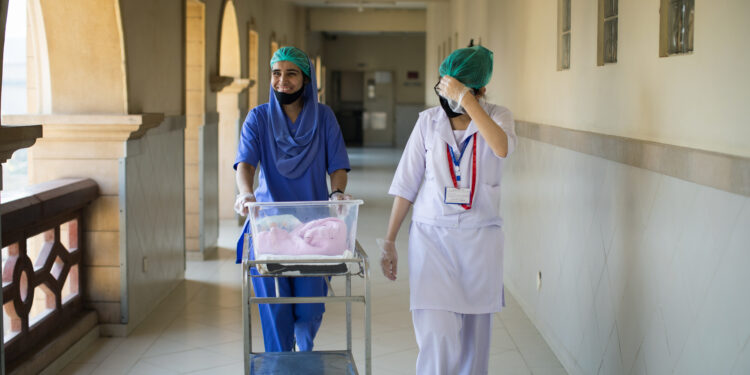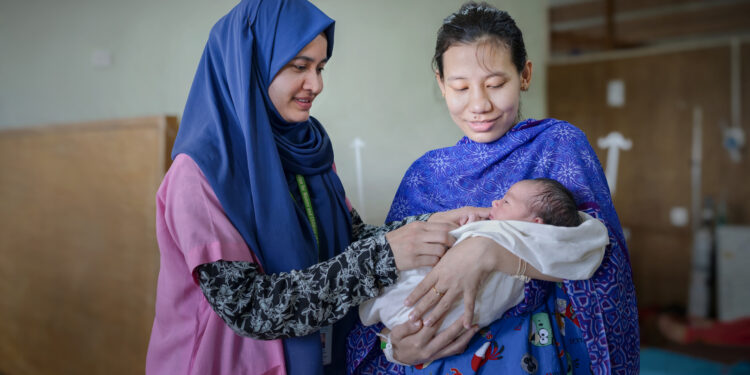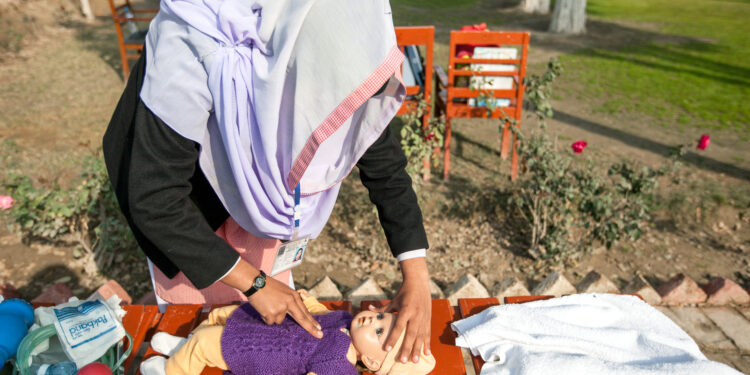Bill of Rights for Women and Midwives

Background
The International Confederation of Midwives (ICM) calls for governments globally to recognise and support accessible midwifery care as a basic human right for all women, girls, and gender diverse people and their newborns. Threats to human rights impact both women and midwives.
Pregnancy and childbirth are significant events that deeply affect the lives of women, families, and communities (1). Women’s experiences of sexual, reproductive, maternal, newborn and adolescent health services (SRMNAH) can include discrimination, coercion, violence, and other forms of ill-treatment (1,2).
The midwifery profession is primarily dominated by women. Midwives also have human rights, however, while working to safeguard the human rights of others, their own human rights are sometimes put at risk (3). Midwives are often exposed to unsafe working environments and experience considerable gendered disparities in pay, career pathways and decision-making power (4).
The Bill of Rights for Women and Midwives highlight the basic human rights that women and midwives are often systematically denied and provides rights-based recommendations for achievement of gender-equity, improvement to SRMNAH services for women and the creation of an enabling environment whereby midwives can work to full scope of practice (5).
Bill of Rights
Every midwifery model of care should strive to be informed by the following guiding principles (6):
Equitable and Human-Rights-Based Care – Ensuring that all women and newborns receive respectful, accessible, and high-quality care, regardless of background or circumstances.
Person-Centered and Respectful Care – Fostering a trusting relationship between midwives and women, promoting dignity, informed choice, and individualized support.
High-Quality Care Aligned with the Midwifery Philosophy – Providing evidence-based, woman-centered care that supports physiological birth and minimises unnecessary interventions.
Care Coordinated by Midwives in All Settings – Ensuring midwives lead and deliver care across diverse environments, from homes and communities to hospitals and humanitarian settings.
Integrated and Collaborative Care – Strengthening coordination within health systems, enabling seamless collaboration between midwives and other healthcare professionals.
These rights can be more specifically described for both women and midwives.
Women’s Rights
ICM believes that every woman has the right to:
- Receive midwifery care from an autonomous and competent midwife for her SRMNAH needs,
- Be treated with dignity and respect at all times,
- Bodily autonomy
- Be free from all forms of discrimination,
- Up-to-date, and evidence-based health information about her health and that of her newborn,
- Actively participate in decisions about her health care, including the right to informed consent and refusal,
- Privacy and confidentiality,
- Choose the place where she gives birth,
- A birth companion of choice.
Midwives’ Rights
ICM believes that every midwife has the right to:
- A midwifery education programme which meets the ICM Global Standards for Midwifery Education, that enables them to develop and maintain competency as a midwife,
- Belong to a profession that is nationally recognised as a separate and distinct from other professions,
- Practise on their own responsibility within the ICM International Definition and Scope of Practice of a Midwife,
- Decent work that is free from stigma, violence and discrimination and to be recognised, respected and supported as a health professional,
- Fair and equitable compensation, including salary and working conditions,
- Career advancement, work to their full potential and access formal leadership roles in their own profession and in national health systems,
- Access a strong midwifery association that is the voice for midwives, supporting midwives, building professionalism and representing the interests of midwives to policymakers and other relevant stakeholders.
Women’s and Midwives’ Rights
ICM believes that together, women and midwives have the right to:
- A system of regulation that protects the public and ensures a safe, accountable, competent and autonomous midwifery workforce,
- National midwifery workforce planning to ensure sufficient midwives to meet the SRMNAH needs of women, girls, and newborns.
References
- WRA 2019. Respectful Maternity Care Charter. Available from: https://whiteribbonalliance.org/resources/rmc-charter/
- Center for Reproductive Rights 2025. Available from: https://reproductiverights.org/our-issues/maternal-health/
- Boydell V, et al. 2023. Hostilities faced by people on the frontlines of sexual and reproductive health and rights: a scoping review: BMJ Global Health;8:e012652.
- UNFPA 2021. The State of the World’s Midwifery 2021, Building a health workforce to meet the needs of women, newborns, and adolescents everywhere. Available from: https://www.unfpa.org/sowmy.
- ICM 2021. Building the Enabling Environment for Midwives: a call to actions for policy makers. Available from: https://internationalmidwives.org/resources/enabling-environment-policy-brief-2021/
- Transitioning to Midwifery Models of Care: Global Position Paper. Geneva: World Health Organization; 2024.
Adopted at Durban Council meeting, 2011
Reviewed and adopted at Toronto Council meeting, 2017
Reviewed and adopted at Virtual Council meeting, 2025
Due for next review 2030
© 2025 by the International Confederation of Midwives
Detailed copyright information can be found here.
Suggested Citation: Bill of Rights for Women and Midwives. The Hague: International Confederation of Midwives 2025.




